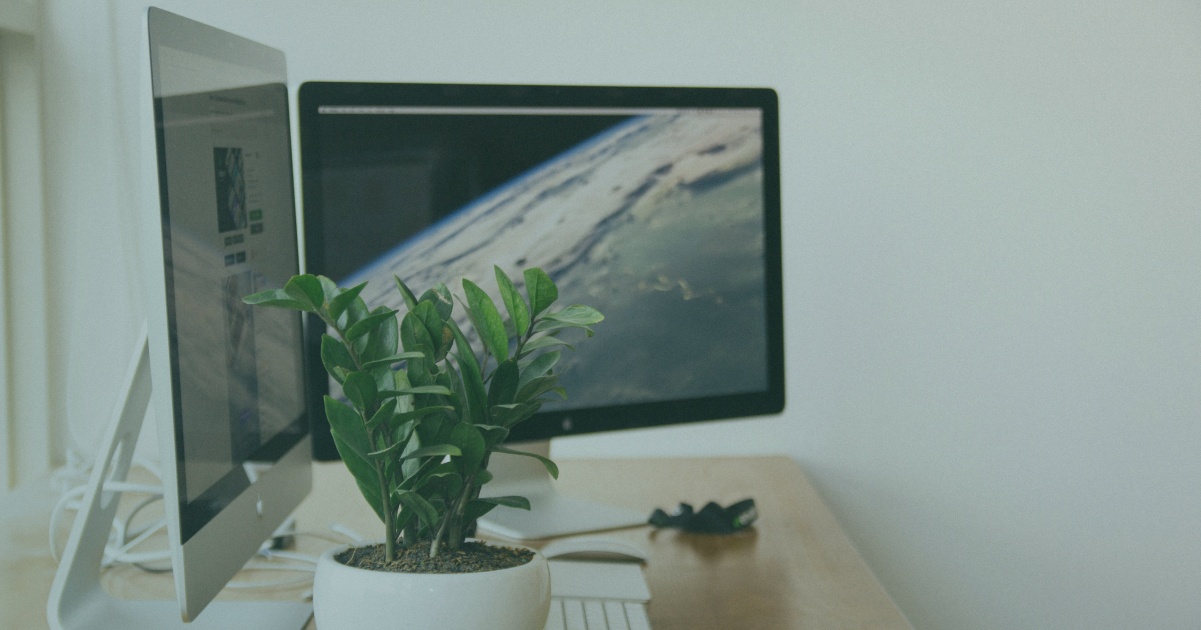
How to Be More Sustainable as a Freelancer
Society is embracing sustainability, leading forward-thinking freelancers to explore how to be more sustainable in their business practices. If you’re ready to unlock the power of sustainability, we’re here to provide some practical tips that will help you reach your sustainability goals and benefit your freelance business.
What Is Sustainability?
The World Commission on Environment and Development defines sustainability as “development that meets the needs of the present without compromising the ability of future generations to meet their own needs.”
In economic terms, this means adopting practices that promote long-term economic growth without harming the social, environmental, and cultural aspects of the community. As a freelancer, you have the opportunity to contribute to this vision of sustainability by making small changes to your everyday practices.
Why Is Sustainability Important?
Sustainability centers around the fact that the survival of humanity is dependent on the earth’s natural resources. However, we’re currently consuming these natural resources at almost twice the rate the earth can renew them, directly fueling the climate crisis.
This is unsustainable and is driving a shift in consumer attitudes. Today, 78% of consumers consider sustainability important and 65% are willing to pay more for sustainable products. Many consumers even report that poor environmental practices would alienate them from a company.
Given these trends, adopting sustainable practices is a necessity for all types of businesses, including freelancers.
How To Be Sustainable as a Freelancer
With this in mind, let’s explore eco-friendly strategies that you can implement as a freelancer to reduce your consumption of natural resources and enhance your environmental sustainability.
Reduce Your Energy Usage When Working from Home
Many freelancers enjoy the advantages of working from home, and the good news is that the planet benefits too. The IEA estimates that if everyone worked from home just one day a week, global emissions would be reduced by about 24 million tons.
But why stop there? Go the extra mile and implement these changes to further reduce your energy consumption:
- Eliminate draughts: Fit draught excluders and window seals in your home office to prevent draughts. This is one of the cheapest and most effective ways to save energy, and it can cut the cost of your bills too!
- Maximize natural light: Place your workstation near a window to reduce the need for artificial lighting, especially in the summer months. This exposure to natural light could even improve your productivity and well-being.
- Use energy-efficient lighting: Freelancing is great for flexible working, so if you choose to work in the evenings and need artificial light, invest in LED bulbs. They use 90% less energy than halogen bulbs and have a longer lifespan.
- Switch off “vampire” devices: It’s important to find time to switch off when you’re working from home – and that includes your devices! On standby, devices drain energy, leading to their nightmarish nickname. Switch them off completely to save money and energy.
- Switch to a renewable energy tariff: When you do power up your devices, choosing a renewable energy or green power tariff can help you be more sustainable. In the UK, select a tariff where the supplier contributes toward the development of renewable energy projects or buys energy directly from renewable generators.
Go Paperless
The pulp and paper industry ranks fifth in energy consumption, making a paperless approach important for sustainability. Digital working is a perfect fit for many freelancers, including writers and proofreaders, so here are our tips to help you permanently part with paper:
- Replace your to-do list with a digital task management tool like Trello or Asana (and make the first task “go paperless”!).
- Exchange your notepad for a note-taking app, such as Evernote.
- Switch paper contracts for digitally signed versions using platforms like DocuSign.
- Send invoices and receive payments digitally with tools like PayPal or QuickBooks.
Embrace the Circular Economy
The circular economy aims to eliminate waste by keeping products and materials in use through eco-friendly practices like reuse, refurbishment, and recycling. This is an ideal way for artisan freelancers to be more sustainable.
Start by sourcing organic, recycled, or upcycled raw materials, and use local suppliers where possible. This reduces the carbon footprint of your products, allows you to visit suppliers’ facilities to verify their sustainability credentials, and fosters meaningful community connections.
At the opposite end of the production process, using sustainable packaging is not only vital for the circular economy but also something customers value. By switching to recyclable tape, plant-based foam, and compostable wrapping, you can minimize waste while meeting the growing demand for sustainable packaging solutions.
Contribute to a Greener Internet
Global data centers – which power websites, apps, and other online services – consume 1–1.5% of the world’s electricity, and this is predicted to double by 2026. But there are steps that freelancers can take to reduce this demand and contribute to a greener internet:
- Regularly clean up your emails and cloud-based folders. Deleting unnecessary files reduces the environmental impact of excessive data storage.
- Use the Green Web Foundation to check if your website host uses green energy to power your site. If their green credentials are lacking, find a different host.
- Make the switch to an eco-friendly search engine like Ecosia or Ekoru and set it as your homepage. These search engines actively contribute to environmental initiatives.
Write a Sustainability Policy
Your actions toward becoming a sustainable freelancer deserve recognition, so use them to write a sustainability policy. Begin by formulating a mission statement and articulating your goals, then explain specific actions you are taking to promote sustainability.
Here’s an example of a sustainability policy from a freelance copywriter, and another from a freelance artist.
Publicizing your policy can give you a competitive edge, attracting eco-conscious clients and investors. Furthermore, as sustainability regulations tighten, you’ll be ahead of the curve, setting the standard for what it means to be a sustainable freelancer.
Becoming a Freelancer
If you’re seeking to work more sustainably while enjoying all the benefits of a fulfilling and flexible freelance career, our proofreading, editing, and writing courses are just what you need. Try some free lessons today!





Your email address will not be published.